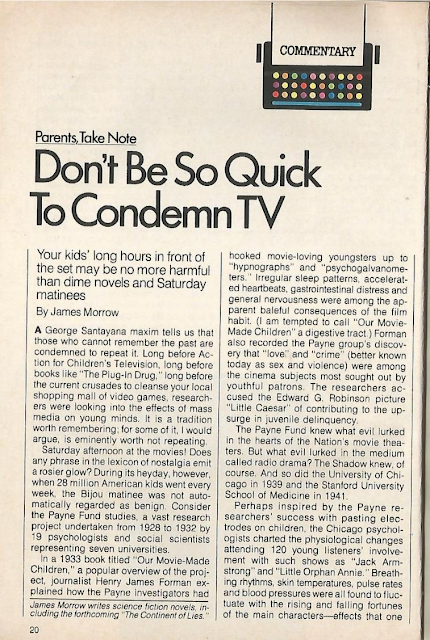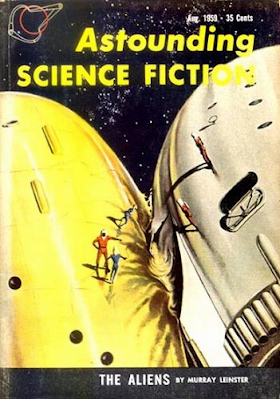Sweet Freedom
Tuesday, April 23, 2024
People Will Talk (on video): Robert Kuttner and Gerald Epstein on current politics and economics in context: Liz Miele: *Murder Sheets* (a comedy concert); Jackie Kashian and Anna Valenzuela on Community Colleges (and audio bonus: *This is Love: Maria Bamford*)
Thursday, April 18, 2024
Tuesday, April 16, 2024
Guest Book Review by Joseph Green: ANNIE BOT by "Sierra Greer"
Annie Bot by "Sierra Greer"
This short novel is a far departure from the ray guns, rocket ships and Colonies-on-Mars that dominated early science fiction. Annie is a sex doll, but one provided with high intelligence by the incorporation of advanced AGI (Artificial General Intelligence) programs. Her body, which had a human embryo as part of its starter base, is externally so realistic she can “pass” in a crowd, despite being a battery-operated machine. The thrust of the novel, told from Annie’s Point of View, is her struggle to become fully human—or at least to free herself from the built-in compulsion to always please her owner, primarily as his sex partner. A major second theme is said owner falling in love with his sex doll, after a failed marriage and an unwillingness to try again with an actual (and capable of resisting him) woman. The interactions of these two characters form the bulk of the novel.
Annie provides a great deal to think about, and in places could lead you into deep philosophical queries—such as what is truly human, and how do we judge. Because Annie was created as a sex doll, the novel has many scenes where she fulfills her built-in compulsions. But she is also “more than”, and as these other characteristics surface she begins to fight for an independent existence. This brings the question of what actually is a “human” to the fore.
"Sierra Greer" is a pseudonym for Caragh O’Brien, who is an established writer of primarily YA SF. It seems clear that with this breakout novel she has expanded her horizons with an adult and very thoughtful examination of a quite possible, and little-explored, near-future world.
(Copyright © 2024 by Joseph Green) (revised from a discussion-list post)
Wednesday, March 20, 2024
SSW: "Day of Succession" by Ted Thomas (1959): Short Story Wednesday
(Arguable "spoilers" for the story throughout what's below; one can read it here first, if one chooses.)
I posted this note to a discussion list not too long ago, since I thought it might be of at least passing interest:
Probably familiar clip to some: Cassie Mackin, Arthur C. Clarke, Rod Serling on THE DICK CAVETT SHOW
Sunday, March 10, 2024
January/February Underappreciated Music: Links to reviews and performances
Maria Alyokhina, Yekaterina Samutsevich, and Nadezhda Tolokonnikova: Pussy Riot Closing Statements (2012)
Cindy Lee Berryhill on Mojo Nixon; Berryhill on Trash Flow Radio on Nixon (about 35 minutes in)
Jim Cameron: Dave "Fathead" Newman: Davey Blue; Wayne Kramer of the MC5
Jeff Cantwell: Totally Wired: Machine Music and the Fossils of the Future (on early electronic instruments)
Annette Crossland: Elles Bailey: "Cheats and Liars"
Jeff Gemmill: Emmylou Harris: Thirteen; The Henry Girls: A Time to Grow; The Long Ryders: Native Sons; Maggie Pope: Crow; Sarah Jarosz: Polaroid Lovers; Mol Sullivan: Goose; Hayley Reardon: Live at Starseed Studios; The Castellows: A Little Goes a Long Way; Steve Bergsman: All I Want is Loving You: Popular Female Singers of the 1950s: AI adventures in reviewing Valerie Carter and the Faragher Brothers: "Never Get Your Love Behind Me": Chat GPT and Gemini
Ted Gioia: My 60 Favorite Nonesuch Albums (in three parts); Part 2 (in part!); Part 3 (in part!)

Jackie Kashian: Ian Lockwood on recent/current Pop Icons
George Kelley: Joni Mitchell: Court and Spark; Rosanne Cash: The Wheel; Girl from the North Country: The Musical; Rock Steady 1971 (a Starbucks album); Daryl Hall and John Oates: Our Kind of Soul; 25 Best Hits of the 1960s [sic]; Oldies but Goodies V. 5 (CD version); Best of the Bubble Gum Years [sic]
Tom Kraemer: John Hall & al.: "Power"
Barry N. Malzberg: Anton Bruckner: Symphony No. 3 in D Minor; Bavarian Radio Symphony Orchestra conducted by Sir Georg Solti; Bruckner: Symphony No. 6: Frankfort Radio Symphony conducted by Christoph Eschenbach
Todd Mason: 1959 Jazz Albums and the '59 Grammys
Charles Mingus, Abbey Lincoln &...
Thelonious Monk: Rewind and Play (link for beyond US)
Natasha Padilla: Mary Timoney: "Don't Disappear"; Saxsquatch
Wesley Paich: The Kiffness: "Numnum Cat"
James Reasoner: Antii Martikainen: "Saloon Showdown"
Charlie Ricci: Creedence Clearwater Revival: "I Heard It Through the Grapevine"; Brinsley Schwarz: Thinking Back: The Anthology 1970-1975; The Saw Doctors and Petula Clark: "Downtown"; J. D. McPherson: Signs and Signifiers; Muireann Bradley: I Kept These Old Blues; People!: I Love You; Billy Joel: Turn the Lights Back On; Arthur Alexander: Lonely Just Like Me; Spacehog: "In the Meantime"; The Tonight Show Band with Doc Severinsen
Melanie Safka and Johnny Cash: "Silver Threads and Golden Needles"
Friday, March 8, 2024
SSW/FFB: HITCHCOCK IN PRIME TIME edited by Francis M. Nevins, Jr. and Martin H. Greenberg (Avon 1985)










